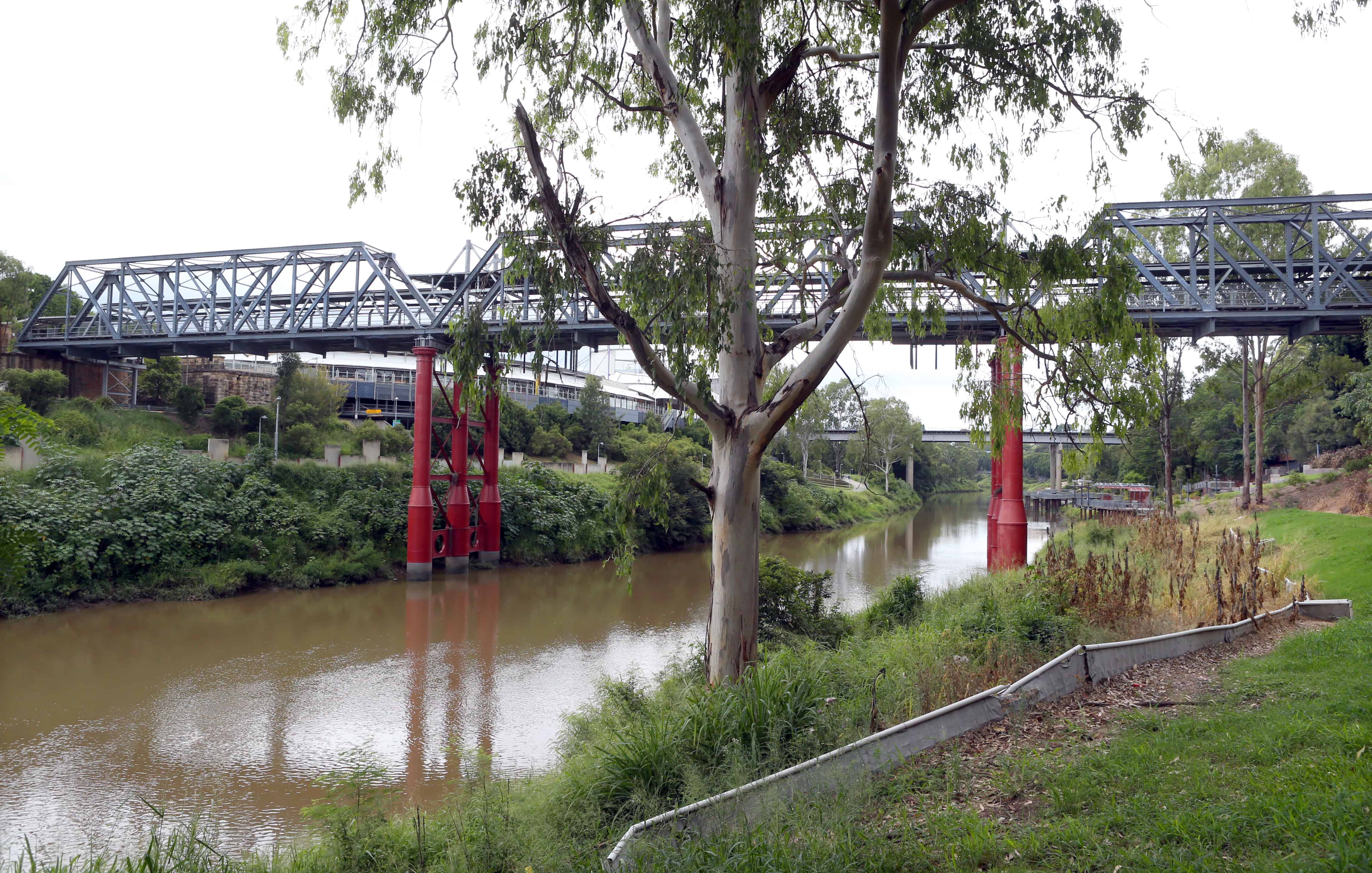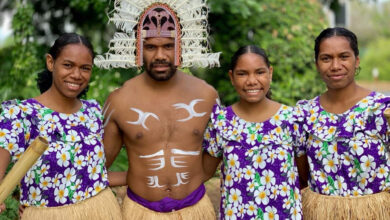Erosion from historic clearing of riparian vegetation along the Bremer River has contributed to Ipswich’s major waterway receiving a low score in an annual health assessment.
The annual report card by Healthy Land and Water reveals the waterway remains in a poor condition while council’s long-term improvement actions take effect.
Ipswich Mayor Teresa Harding said the Bremer River catchment area supports a diverse range of land uses including grazing, crop production, bushland, rural and urban development, and industry.
“The Bremer River is the primary waterway in Ipswich, flowing through the heart of the city and provides an essential social, recreational and environmental corridor,” Mayor Harding said.
“It is concerning the catchment is in poor condition with a D grading meaning stream bank vegetation is only at 55 per cent cover, fish health has declined slightly, and the water quality is in poor condition.
“I requested a full report on council’s roles and responsibilities in the management of the Bremer River and Ipswich waterways last year and, from that report, council has taken several actions to improve waterway health.
“Guided by our Waterway Health Strategy, council is working in partnership with natural resource management bodies, catchment groups, industry, developers and our neighbouring councils to plan, promote and implement successful strategies for improving our waterways.
“While council is now well positioned to lead real change at a local level, there is no quick fix to erasing past catchment management mistakes.”
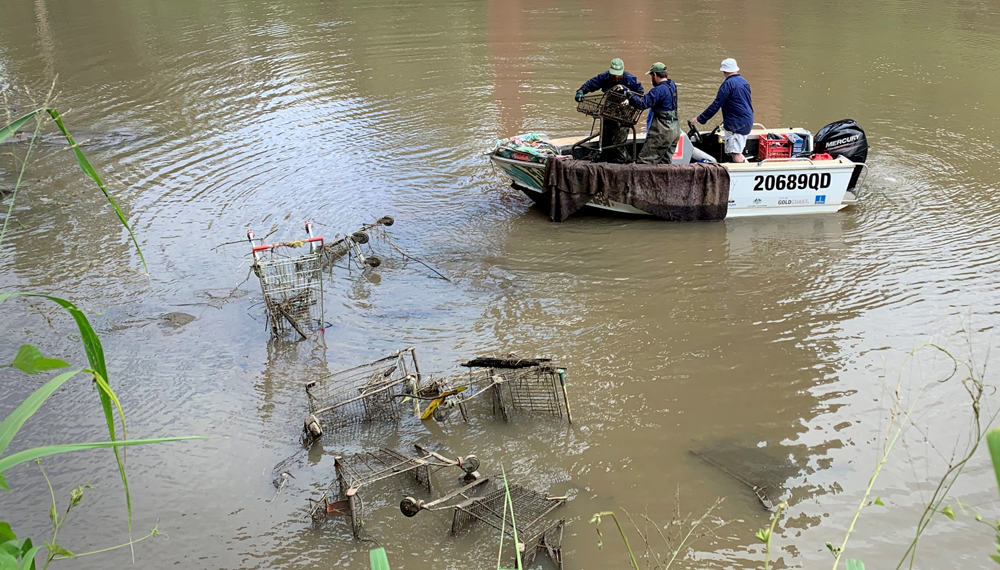
Council removed 75 abandoned trolleys from the Bremer River in the past year.
Council continues to play a lead role in educating the community and industry on the benefits of improving our management of waterways across the city.
Environment and Sustainability Committee Chair Councillor Russell Milligan said it takes years to turn the tide on poor river health.
“In only a decade the eyes of the world will be on South East Queensland for a promised ‘green’ Olympic and Paralympic Games,” Cr Milligan said.
“Our region must continue efforts to ramp up restoring vegetation to riverbanks and managing urban run-off.
“It is crucial for the sustainable development and growth of our city that all stakeholders work together to balance the protection and health of our waterways with access for community enjoyment and all the benefits that brings, with our report card indicating that residents had high levels of satisfaction with their local waterways for recreation.
“The Bremer catchment is also impacted by historic loss of vegetation and riparian cover, and as the fastest growing city in Queensland, council is looking to protect and manage our waterways effectively for future population growth.”
Council is currently tackling the city’s waterway health issues one initiative at a time.
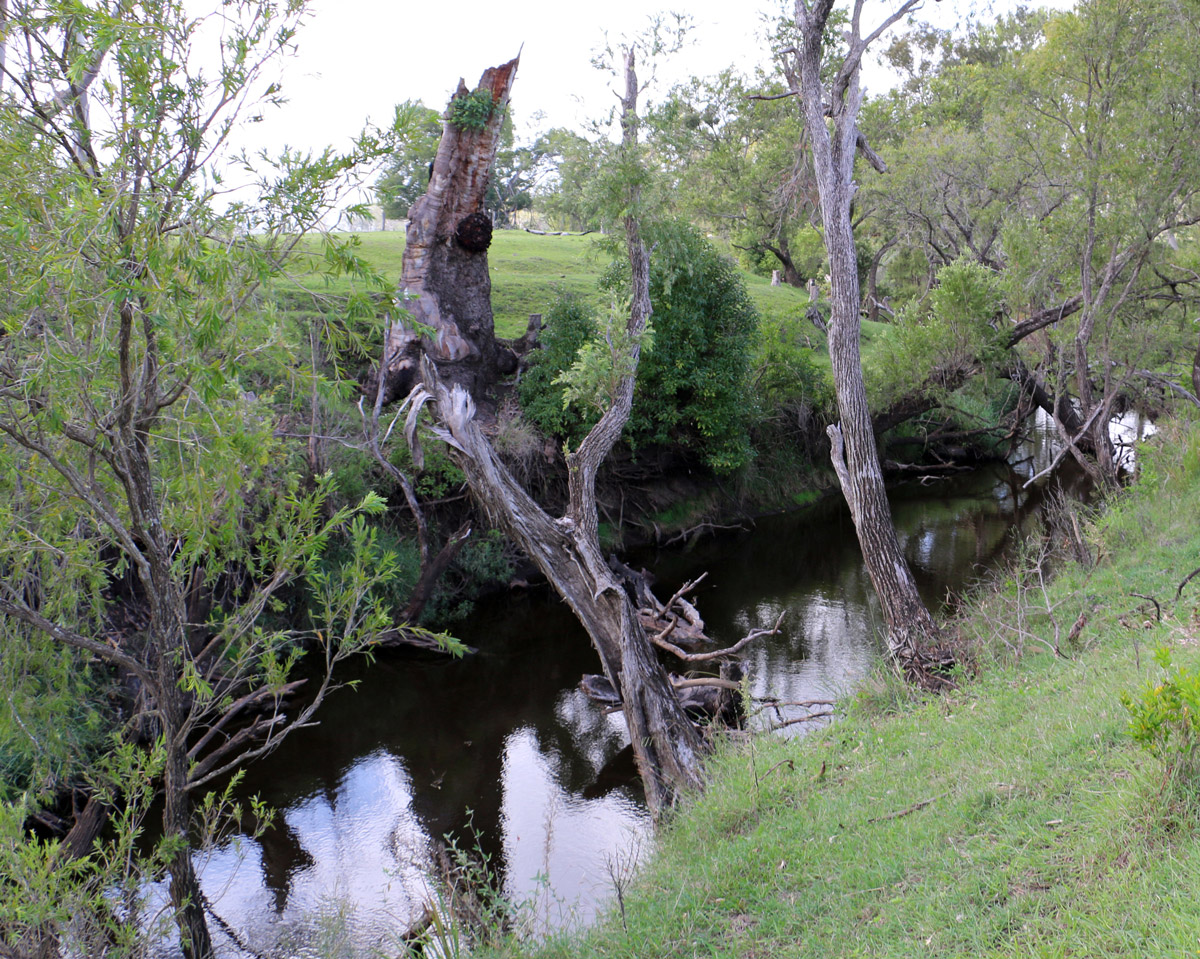
Franklin Vale Creek
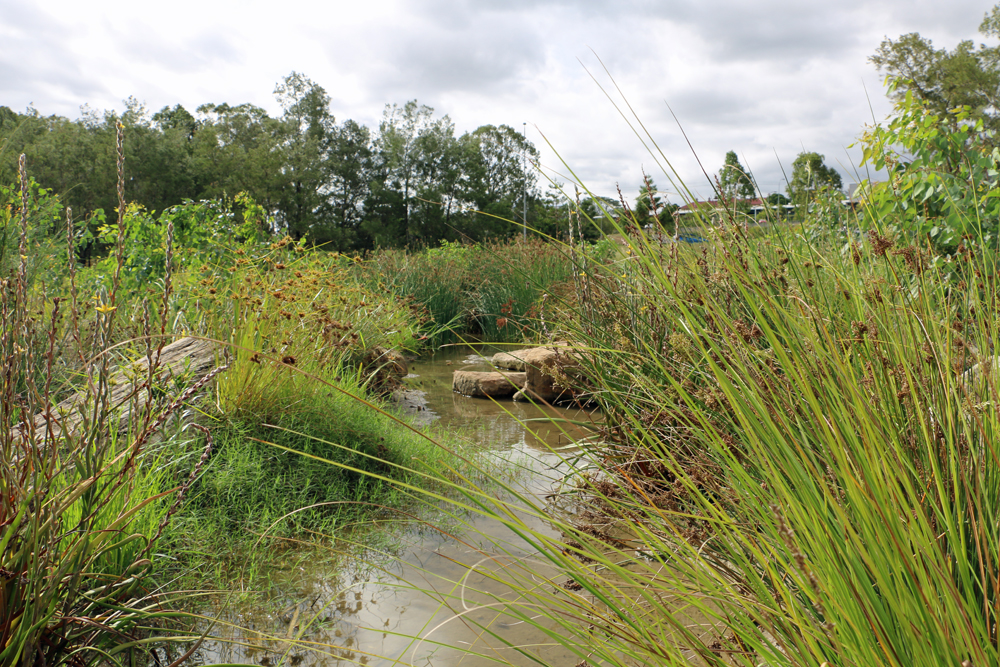
Small Creek
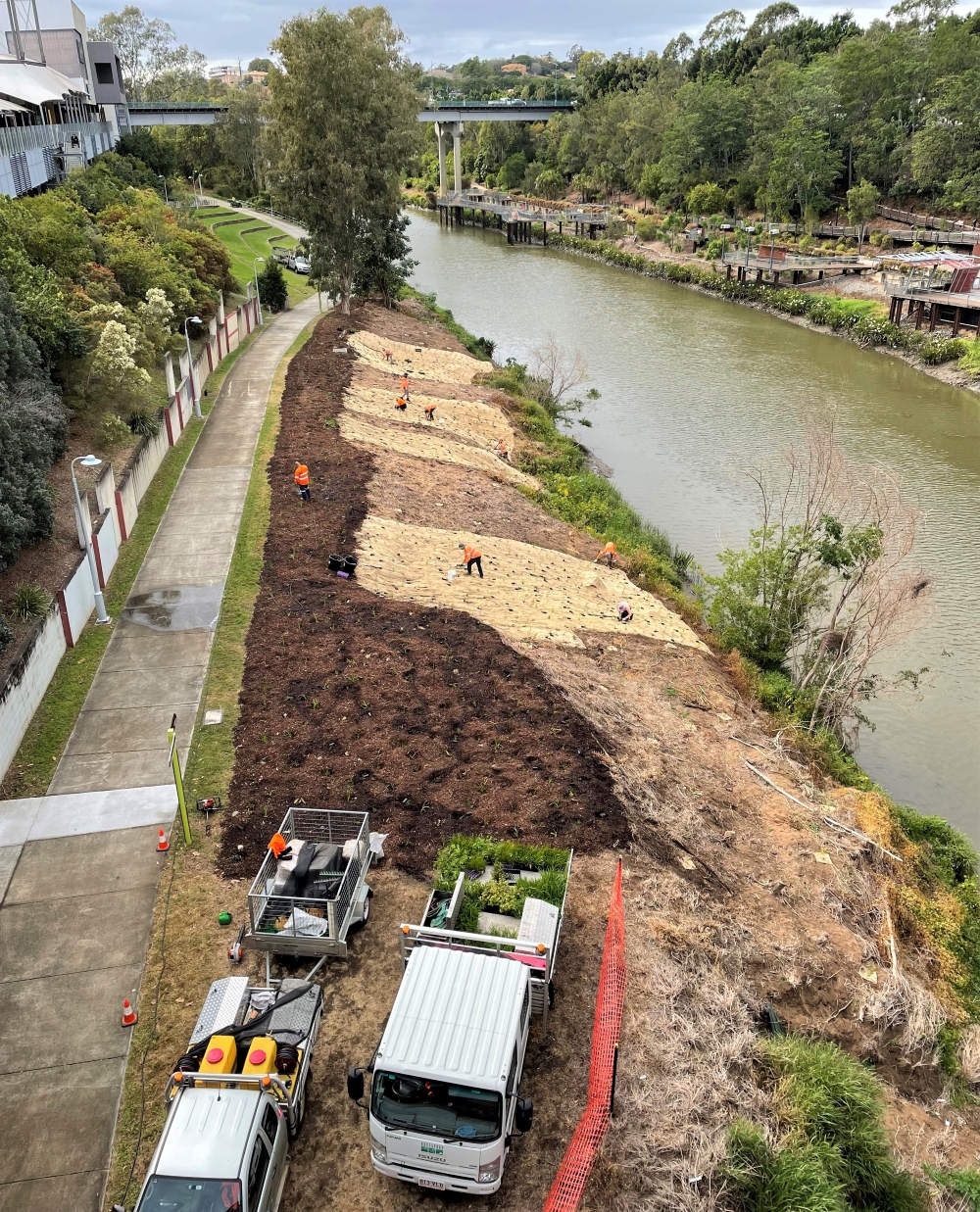
Bremer River rehabilitation with 4,000 native plants
Landholders along a 2.8km stretch of Franklin Vale Creek worked with council recently to deliver revegetation along the riverbank, weed management and to build stock exclusion fencing.
A stretch of Bremer River in front of Riverlink Shopping Centre has been rehabilitated as part of council’s ongoing Habitat Connections Program.
More than 4,000 native plants have replaced overgrown weeds along this section of the riverbank providing natural improvements from enhancing water quality and animal habitats to reducing erosion and flood damage.
As part of the Resilient Rivers Initiative, council has partnered with Scenic Rim Regional Council to appoint a dedicated Catchment Management Officer to oversee improvement activities throughout the Bremer River catchment.
Council has invested in Water Smart Tree project which is an innovative way of using stormwater to nourish street trees by diverting runoff from the kerb to the root zone of street trees.
The award-winning Small Creek transformation continues to progress from a straight concrete channel in Raceview to a living waterway. The fourth and final stage is now in the planning phase.
While the environmental condition of the river received a poor report card, there was a notable increase in the number of residents expressing their satisfaction with their local waterway, with the highest results recorded since measures started in 2015.

